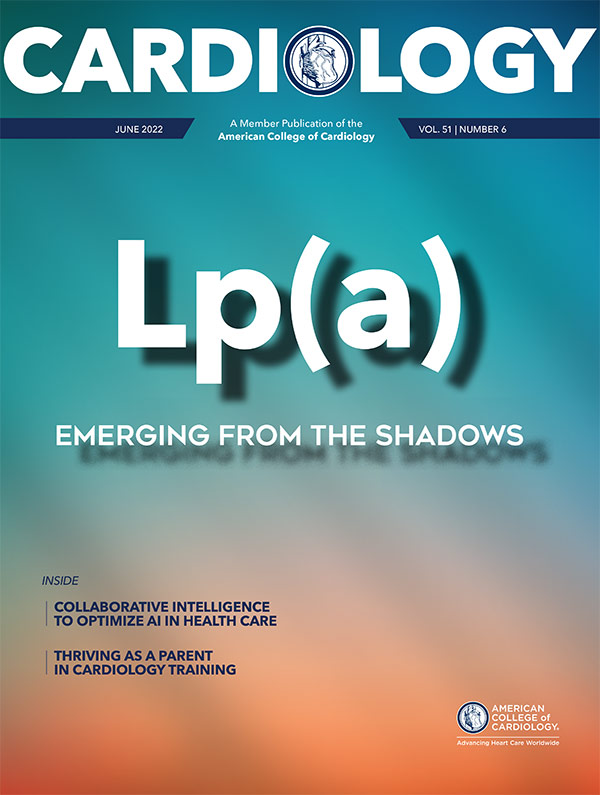Feature | Tackling Ethical Challenges in Delivering Cardiovascular Care

The Tuskegee Study of Untreated Syphilis in the mid-1900s and the use of Henrietta Lacks' cells for research without her consent in the 1950s are just two examples of ethical failures in health care.
Today, ethical challenges and moral dilemmas continue, often centering around biases, disparities and differences that impact both delivery of and access to equitable care. Delivery of end-of-life care in patients with an ICD, as well as access to advanced heart failure treatments, are two examples of cardiovascular care where ethical challenges persist.
ICDs and End-of-Life Care
During a focused session at ACC.22, Melanie S. Sulistio, MD, FACC, associate professor of medicine at UT Southwestern Medical Center and Parkland Hospital, highlighted the number of patients who receive ICD shocks and suffer significant pain at the end of life, despite requests or discussions about deactivation of the devices. This is not what most people would consider "to be a good quality death," she said.
The data are stark. An active ICD at the time of death was found in 50% of patients with a DNR in the MADIT II trial, which also showed that up to 10% of patients continued to receive ICD shocks through end of life. Higher proportions were found in a Swedish study of explanted ICDs from 125 patients: 78% died with ICD therapy, 31% received >one shock in the last hour of life and 64% of DNR patients had tachytherapies programmed on at the time of death, discrepant from the patient choice.
A survey from the Netherlands of relatives of 170 patients who died with an active ICD found that 38% had discussed deactivation of the ICD, yet a quarter of patients still experienced shock in the last month and 10% on the last day; distress over the shocks was reported by 74% of patients and relatives – and quality of death was scored higher for patients whose device was deactivated.
Listen to the Session Anywhere!
View the entire "Ethics in Cardiovascular Care" session with ACC Anywhere, the ACC.22 Meeting on Demand Program. Access it at ACC.org/ACCAnywhere. Features include presenter slides with synchronized audio, convenient online access and PDF downloads of slides. Plus, all the credit you need — offering up to 100 CME/CE/ABP MOC/MOC/PA/CPE/ECME credits and 31 IPE credits.
"We must be practicing informed consent and we must be practicing patient-centered care. It should always be about the patient so we can engage in shared decision-making," said Sulistio.
Yet there are barriers at the patient and physician level. About a third of patients lack sufficient knowledge about their ICD to make informed decisions, correlating with indecisiveness about deactivation, and many patients and families do not understand that ICDs can be deactivated.
A survey from Sulistio's hospital of 26 patients with an ICD at end of life revealed that 46% thought turning off ICD shocks meant the heart stops beating, 69% thought surgery was required and 81% did not know it can be deactivated with a magnet.
On the clinician front, many cite concerns about turning off hope, the lack of rapport or relationship with the patient and lack of ownership if they were not the ordering physician, as barriers. Last, but certainly not least, an ICD is out of sight, thus out of mind. One survey showed that a quarter of cardiologists never discussed deactivating the ICD, and another found that 50% of physicians said they were not comfortable discussing ICDs.
Based on these collective insights, Sulistio's hospital is working to empower patients to make informed ICD and goals of care decisions, by creating education tools with diverse representation (including a video with ICD patients) and identifying processes for patient education that are timely and appropriate in terms of language and learning level, as well as resolving barriers to conversations about goals of care and shared decision-making.
Ethical Issues in Heart Failure, Transplantation and MCS
The allocation of scarce resources in the setting of advanced therapies for heart failure, including heart transplantation, left ventricular assist devices (LVADs) and mechanical circulatory support (MCS) can raise ethical challenges at each step of the patient care pathway of referral, evaluation and multidisciplinary selection for treatment, affecting who gets treated and how.
In terms of referral, whether all patients who would benefit from advanced therapies are referred is unclear and the size of that population is unknown, said Prateeti Khazanie, MD, MPH, an advanced heart failure/transplant cardiologist at the University of Colorado Anschutz Medical Campus. However, Khazanie notes that according to registry data, only about a third are women and only about a quarter are Black. The subjectiveness of the psychosocial assessment, which lacks a standardized set of criteria compared with a medical evaluation, may also contribute to the differences in those who are referred and evaluated.
Ready, Set, Action!
Click here to access an ACC/AHA report on the management of professional and ethical behavior in cardiology based on the outcomes of a joint 2020 Consensus Conference on Professionalism and Ethics.
For those ultimately selected for treatment, disparites and differences are also observed, with women representing only 30% of patients selected for heart transplantation and 20% of those selected for LVAD therapy. In both cases, only about 20% of Black patients are selected for treatment.
Implicit biases, regulations and rules and financial incentives are among the leading factors contributing to unwarranted variations in advanced heart failure care.
The allocation system for transplantation itself, with its inherent tension between the physician's ethical obligation to promote the well-being of their patients, LVADs becoming available and the final rule on transplantation calling for the broadest geographic distribution of organs, is also an issue. Based on research being conducted by Khazanie for the National Institutes of Health, the allocation system has created "moral distress" for some physicans who are "feeling forced by the system" to make decisions that move their patients higher on the wait list. This includes a decrease in the use of inotropic support and an increase in the use of balloon pumps and MCS, although patient characteristics have not changed. In fact, there is concern in the advanced heart failure community, said Khazanie, that some patients who would benefit from an LVAD are not receiving them, in order to place them on the transplant wait list, potentially depriving them of a beneficial treatment.
In terms of justice when it comes to who gets an organ, Khazanie said clinicians need to weigh patient-level subjective factors that can impair functional status and make high-dose inotropes or IABP appropriate. There also needs to be recognition that overtreatment may lead to shorter wait times.
At the population level, the medical community needs to grapple with factors like excess cost, risk of therapy-related complications, and unfairly elevating the status of a candidate with a less urgent need.
At the end of the day, whether it's addressing ICDs at the end of life or determining who is referred, evaluated and treated for heart failure treatment, "ethical medical practice is an a priori assumption of medicine's social contract, and the principles of ethics shape that contract, according to the ACC/AHA 2020 Consensus Conference Report on Professionalism and Ethics. "Clinicians must be trustable and trustworthy, especially when engaged with the most vulnerable, most marginalized, and most underrepresented in the population. As professionals who facilitate health and, when needed, restore health, it is important to respect the trust equation," the report states.
Clinical Topics: Cardiac Surgery, Heart Failure and Cardiomyopathies, Invasive Cardiovascular Angiography and Intervention, Cardiac Surgery and Heart Failure, Acute Heart Failure, Heart Transplant, Mechanical Circulatory Support, Arrhythmias and Clinical EP
Keywords: ACC Publications, Cardiology Magazine, Critical Pathways, Waiting Lists, Functional Status, Heart-Assist Devices, Motivation, Ownership, Patient Preference, Patient Selection, Professionalism, Social Justice, Syphilis, Heart Failure, Heart Transplantation, Registries, National Institutes of Health (U.S.), Patient-Centered Care, Informed Consent, Medical Overuse, Biomedical Technology, Referral and Consultation, Hospitals, Pain
< Back to Listings


